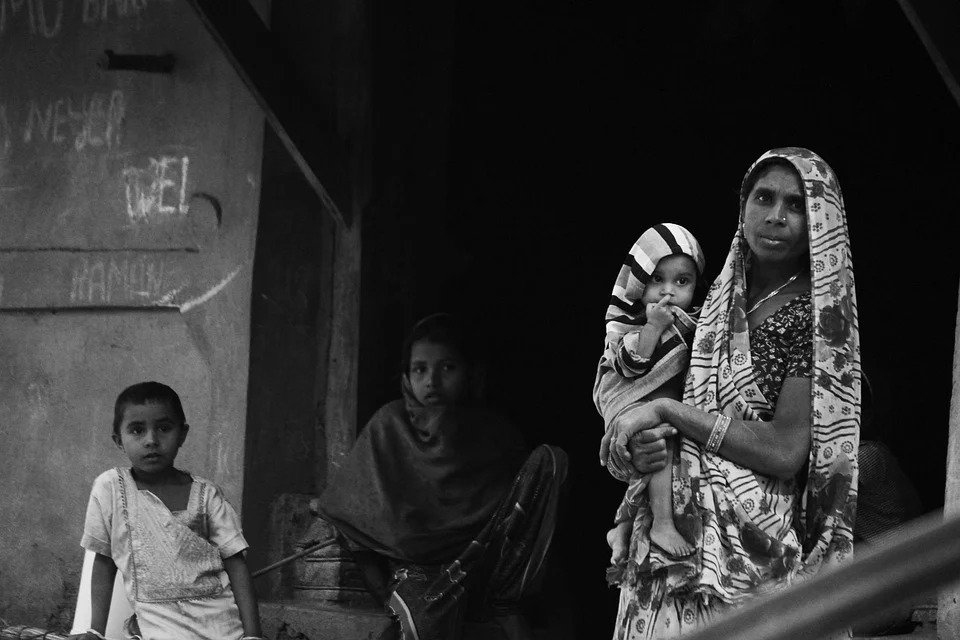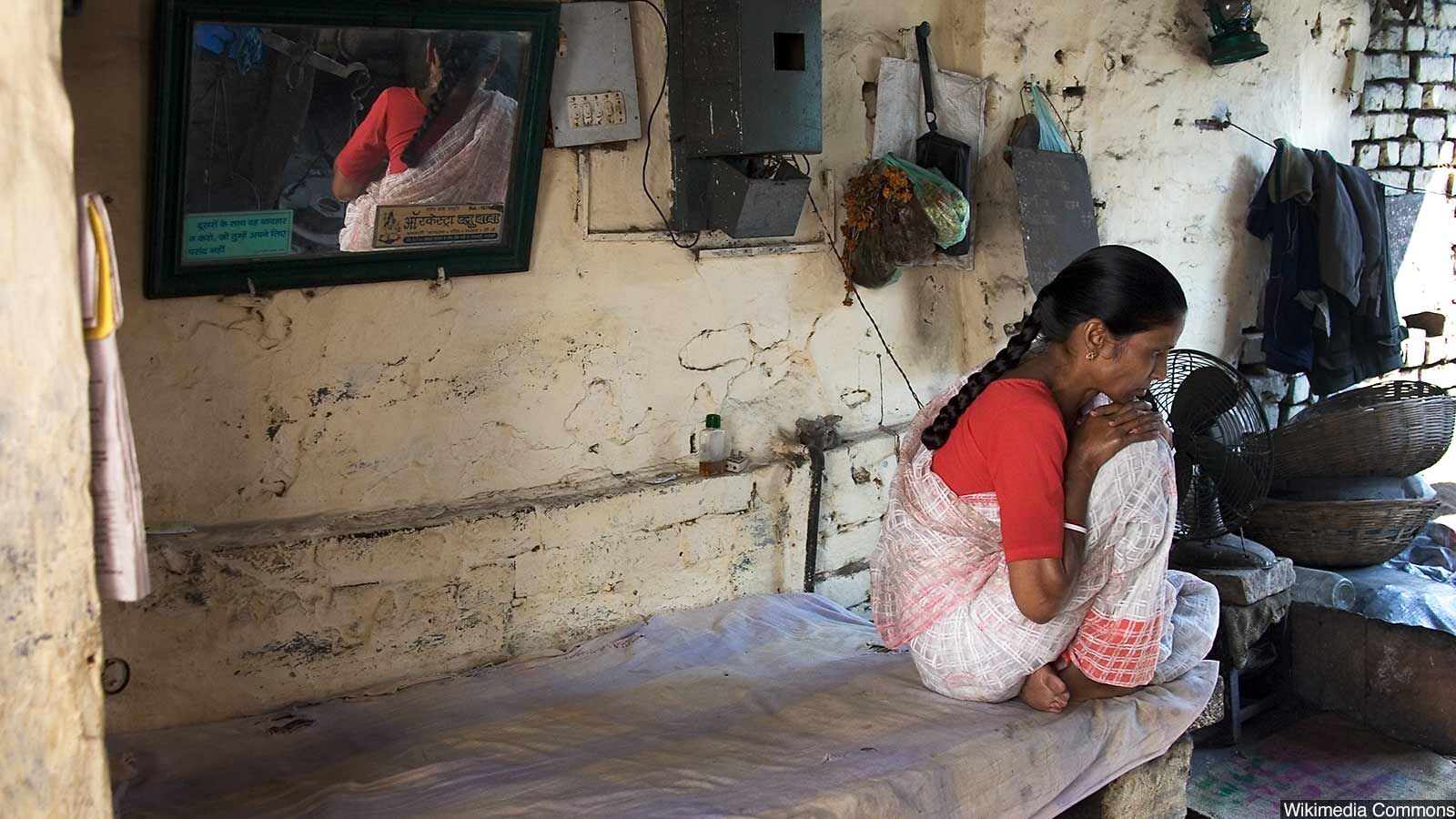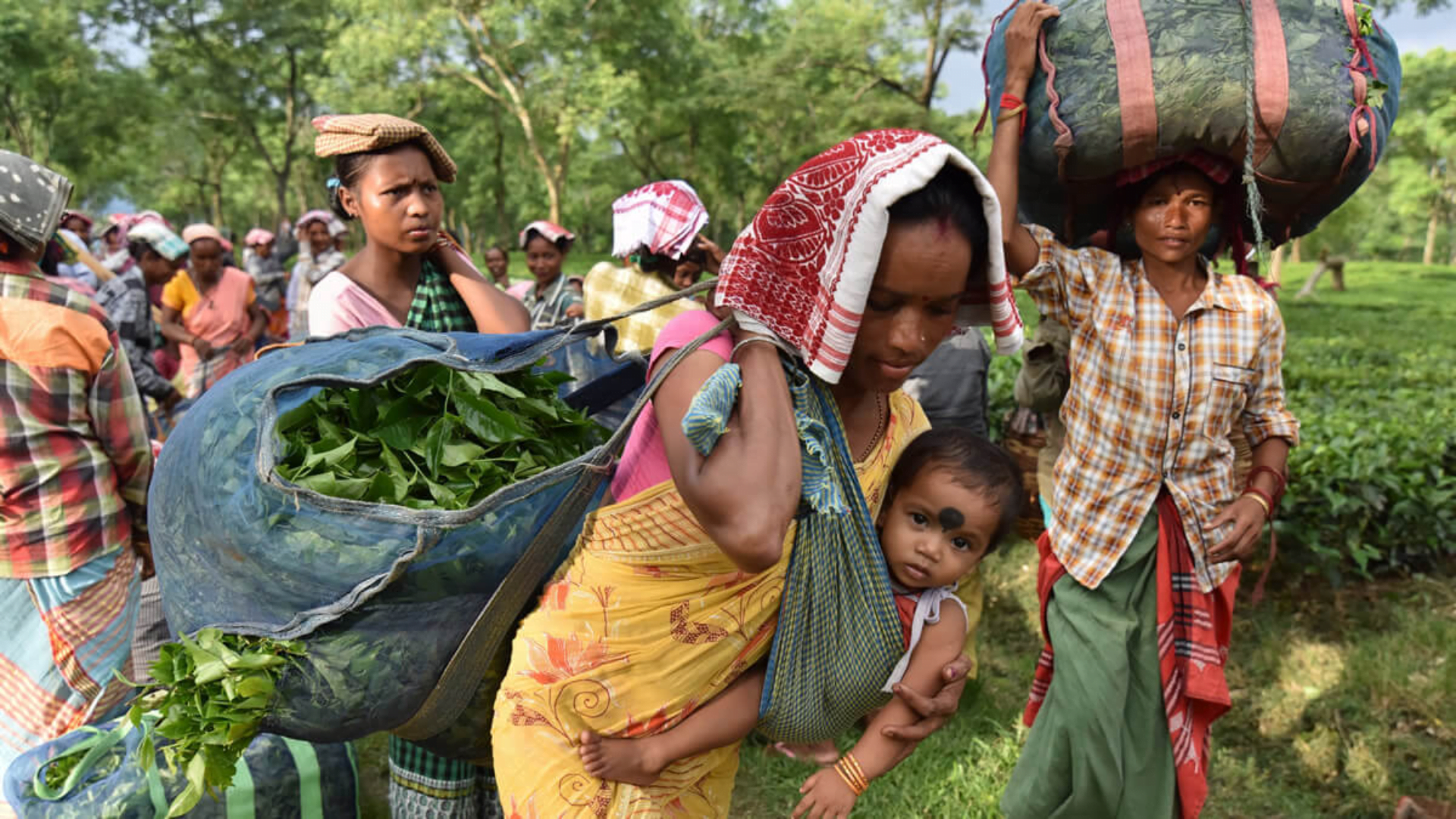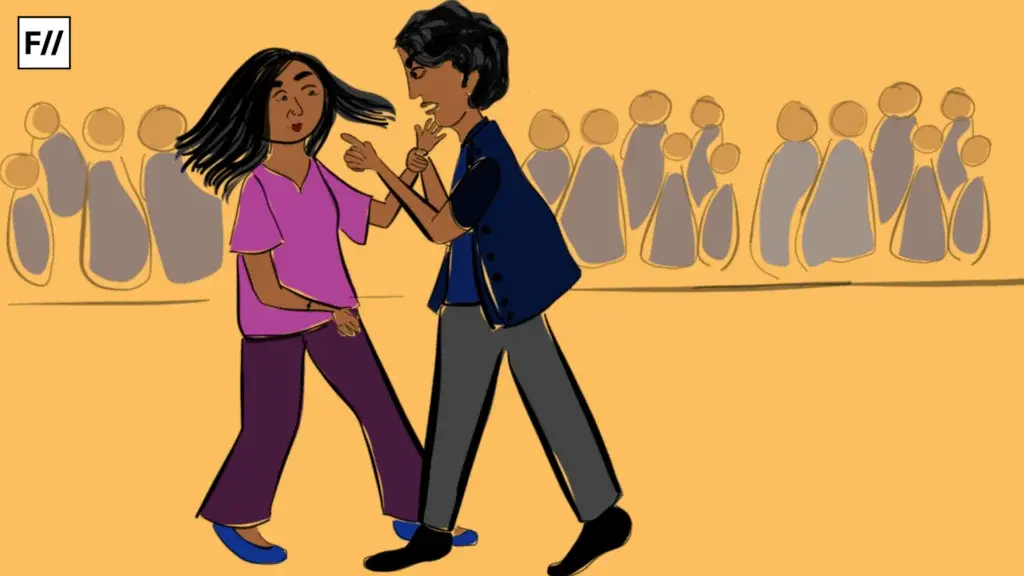Trigger warning: This article contains mentions of gender-based violence
A video of a woman being tied up to a tree and assaulted by a man while others were seen standing around her, went viral recently. The incident took place in the Banswara area in Rajasthan.
Though six people were booked after the video went viral, these kinds of horrifying incidents are a warning towards the alarming situation of violence against women in the country and how it has been normalised over the years.
This viral video caught the attention of the National Commission for Women in India (NCW), and the required actions are being taken. But, there are so many cases which go unnoticed and unreported by the media. Particularly in rural India, numerous such instances are not even reported in mainstream media.
This viral video caught the attention of the National Commission for Women in India (NCW), and the required actions are being taken. But, there are so many cases which go unnoticed and unreported by the media. Particularly in rural India, numerous such instances are not even reported in mainstream media.

It’s shocking to see the lack of media’s concentration on rural parts of India, given that 68 per cent of India’s population lives in rural India. Moreover, women living in rural areas (36%) are more likely to experience domestic violence as compared to women in urban regions(28%).
Most matters in villages are dealt with by the household head or head of the panchayat, who are much more likely to not even pay attention to issues catering to domestic abuse. Women’s safety and living condition is not the priority.
Most matters in villages are dealt with by the household head or head of the panchayat, who are much more likely to not even pay attention to issues catering to domestic abuse. Women’s safety and living condition ARE not the priority.
Normalising abuse in a marriage is highly dangerous. It can have a negative impact on the mental health of women, which in rural areas is not even documented.
Therefore, the media’s coverage of rural India’s cases of spousal abuse is paramount. It’s because it will create an awareness in society that harmful actions such as physical abuse are not normal in a marriage, and these actions can also have legal consequences.
The patriarchal nature of our society is the biggest part of the problem. Since childhood, a woman is taught how to be quiet and bear the pain and men are never taught how to behave with a woman. Women have been told that “this happens in a marriage, and it’s okay”. This patriarchial conditioning shouldn’t happen, and the normalisation of such harmful incidents will not do any good to anyone.
According to a report by the National Family Health Survey (NFHS-4), 30 per cent of women in India in the age group of 15-49 have experienced physical violence. The survey further highlighted that 83 per cent of the married women in the age bracket had experienced abuse wherein the perpetrators are their present husbands.
A patriarchal society where men believe that they are superior to other gender and they have the right over a woman after the marriage is something that leads to physical abuse in a marriage.
According to a report by the National Family Health Survey (NFHS-4), 30 per cent of women in India in the age group of 15-49 have experienced physical violence. The survey further highlighted that 83 per cent of the married women in the age bracket had experienced abuse wherein the perpetrators are their present husbands.

While some cases are reported, many cases go unreported. The reason for not reporting a case is because women are made to believe that it will bring shame to the family and it’s their personal matter. Though the woman is a victim who has faced the abuse of the husband, she’s blamed for destroying the marriage if she decides to report the case.
This idea of “men dominating over women” stems largely from the patriarchy. Women have been placed secondary to men, which has resulted in rape, dowry deaths, domestic abuse, child marriage, sati, polygamy, purdah system, female infanticide, forced pregnancy and illiteracy in women.
The patriarchal system, along with gender stereotypes in the society and family, has always prioritised the male child. Sons are viewed as a source of social security, while women continue to be dominated by men.
More horrendous cases of domestic violence came out during the lockdown when the victim was basically locked down with the abuser. The National Commission for Women (NCW) had witnessed a two-fold increase in the complaints of violence against women across the country during the lockdown.
NCW received 3027 complaints across 22 categories of crimes against women, of which 1428 (47.2%) were cases of domestic violence and intimate partner violence just between the months of April and May in 2020.
Most women refrain from even filing a complaint because of a stigma about their family’s reputation and how it will impact their own life. Divorce is somehow a bigger issue to the family than a woman staying in an abusive marriage. If a woman wants to come out of an abusive relationship, sometimes her lack of education and financial independence pulls her back.
This practice of males assuming control over women’s bodies after they are married has continued for centuries. The biggest worry is the acceptance of these practices by large sections of society. It has become extremely common to hear something like “it’s okay, it happens in a marriage” when women talk about physical violence by their husbands.
So staying in an abusive marriage has become a new normal for a happy marriage. An abusive marriage is also not just some issue between a husband and a wife. When did violence become just a personal issue, and when did it become such a normal topic?
It is time to take steps that can help people in speaking about their abusive partners and free our society from the aged-old patriarchal norms. Abuse of any form by anyone shouldn’t be justified in the name of any relation. It not only causes physical harm but also leaves a mental scar.
Also read: In The Invisibilisation Of Domestic Abuse, Is Home Really A Safe Haven?
If the patriarchal attitude towards harassment continues to be normalised, then it will worsen the living condition of a woman. By educating women, realising equal rights, and creating an environment where they have the right to exercise their freedom of speech, we can contribute to building a better society.
Also read: Domestic Violence: When Sanctity Of Family Is Prioritised Over Dignity Of Survivors
Featured image source: Shreya Tingal for Feminism In India
About the author(s)
Pragati Parihar is a masters student, studying International Relations at University College Dublin, Ireland, and is highly interested in topics such as feminism, gender based violence, and gender representation in politics. Also a travel enthusiast and an avid reader of mythology!




